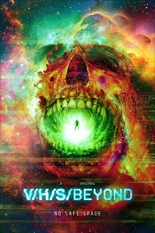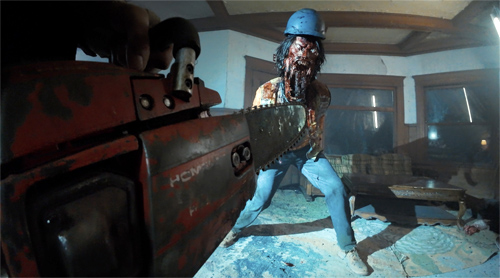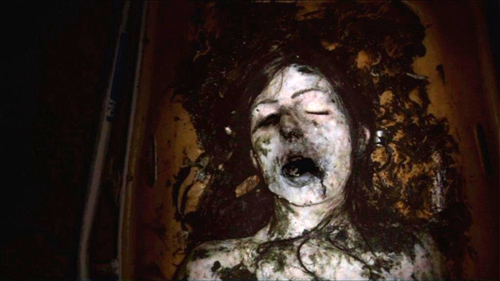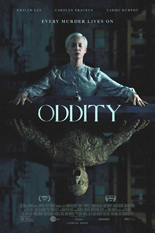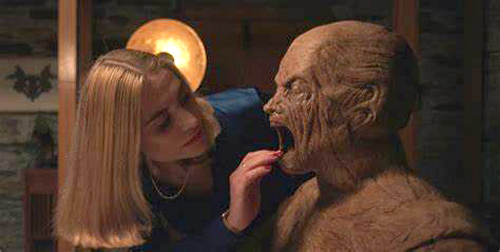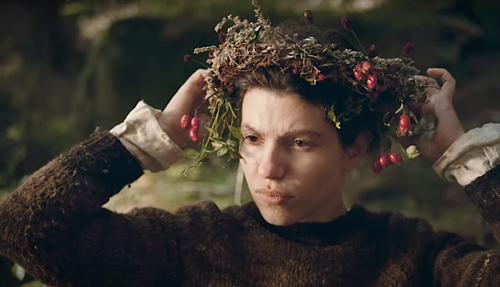
For every Cinema Paradiso, there’s a film primed to make us regret ever watching movies. Since 2016, Damien Leone has seemingly gone out of his way to put that “honorary” distinction on the Terrifier franchise. And he does a pretty damn good job at it. Still, pushing the grotesque envelope can only go so far until it eventually busts. With Terrifier 3, Art the Clown (David Howard Thornton) makes a tragic misstep from shockingly scary to schlocky slapstick.
After his head’s cut off by Sienna (Lauren LaVera) at the end of Terrifier 2, Art’s reanimated corpse reconvenes with his first victim turned disfigured villain, Victoria (Samantha Scaffidi), at an insane asylum. (Conveniently, she also gave birth to his head at the end of the second flick.) The starstruck lovers seal their union by ceremoniously bashing in the brains of an unsuspecting Chris Jericho.
Five years later, Sienna’s released from a trauma center to the care of her aunt (Margaret Anne Florence) and uncle (Bryce Johnson). She quickly reconnects with her niece, Gabbie (Antonella Rose), while trying to do the same with her similarly scarred little brother, Jonathan (Elliott Fullam). At the same time, Art and Victoria resurface to dismember families and blow up some children. You know, the usual.
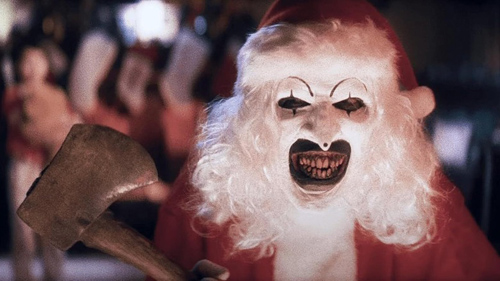
Terrifier 3 isn’t outright bad. The kills seem somehow more brutal and deranged, and Leone’s choice to set the film during Christmas seemed like an easy way to frame Art’s violence toward children. It’s a setup that yields some entertaining payoffs, like when the clown toys with a drunken mall Santa at a dive bar. Yet these fun sequences ring hollower when the narrative that facilitates those scenes feels like an afterthought. Bone Tomahawk provides enough evidence that intense gore — even when it seems to be the entire point of a movie — doesn’t require a weak and uninspired plot.
Which begs the question: Why create any continuity for Terrifier at all? It ultimately feels like the best vehicle for Art was All Hallows’ Eve, Leone’s 2013 anthology film that used the clown as more of a chilling concept and occasional slasher villain. If the intent is to make Art into a lawless agent of chaos, Leone’s tale of angels versus demons seems like a horribly messy distraction.
That said, Terrifier 3 is still a gorehound’s smorgasbord. The supposedly gruesome opening scene, however, feels a bit overblown. Yes, it’s grizzly, but it feels like extremely familiar territory for anyone who’s watched 15 minutes of either previous film. And by the time we get to the real show stealer, a chainsaw massacre in a coed shower, its effect almost seems muted by what came before. The practical effects are still impressive, but beyond lingering on the brutality for a bit longer than usual, it doesn’t really feel like leap into a horrifying new direction. It’s more like a gentle shuffle.
As it stands (or hobbles), it feels like Terrifier has run its course. Art is still legitimately creepy, but he’s starting to resemble a black-and-white crutch for Leone. With the next installment alleged to be the last, it’ll be interesting to see the filmmaker try a bit more than excessive blood and guts. Because, ultimately, the gory torture porn is about the only thing that distances Terrifier 3 from a Lifetime original movie. —Daniel Bokemper


